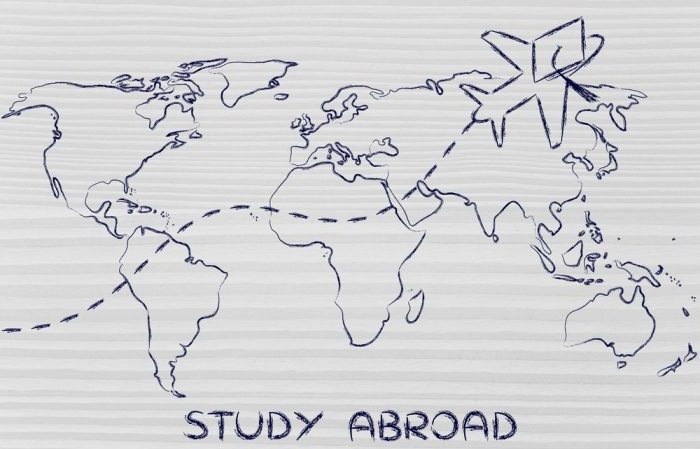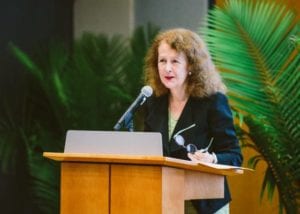
More than 300,000 American college students study abroad each year, a number that’s on the rise; and those who do return with broadened perspectives of the world, solid resumes and even job opportunities.
Adult education doctoral student Dwight Nimblett, a program director at the Center for Academic Success, described his trip to Italy as “transformative.”
While there, Nimblett participated in simulations of disabilities, including navigating the streets of Venice in a wheelchair and being blindfolded for a day. He said it gave him a better understanding of the need to accommodate people with disabilities so that they may travel the world as fully as able-bodied people.
“It changed me in such a profound way, in terms of the way I listen to the disabled,” Nimblett said. “So when I returned, I returned as somebody else, even though it was only a two-week activity.”
In addition to FIU’s Office of Study Abroad, the U.S. Department of State (DOS) offers a variety of opportunities to students, new graduates and faculty members interested in studying and researching in other countries.

People who research and study abroad sometimes underestimate the value of the service they’re doing for their country and for the world, said Marianne Craven, the managing director of academic programs at the DOS Bureau of Educational and Cultural Affairs.These opportunities range from scholarships and grants to fund trips and research, to special projects in key areas of foreign service, such as teaching English abroad.
Craven said globally, the United States has a reputation for excellence in higher education, and it inspires academics and organizations to want to collaborate with U.S. scholars and universities.
“While there are difficult situations going on in the world, education is an area where countries can work together,” Craven said. “Everyone aspires to have their young people have opportunity, to see the next generation improve things, to have economic progress. Education is really crucial to that.”
The DOS offers programs for undergraduates, postdoctoral graduates, faculty and more. Though many are geared toward graduates and faculty, students should keep in mind it’s never too early to consider careers in foreign service and to begin strengthening their portfolios and resumes.
Such opportunities include:
- Gilman International Scholarship Program– scholarship program funding low-income or first-generation students’ study abroad trips
- Fulbright Program – international educational exchange program, which provides funding for students and faculty to study and research in other countries
- Humphrey Fellowship – brings mid-career professionals from developing countries to the United States to engage in professional development
- Teacher Exchange Program – sends U.S. teachers abroad and brings international teachers to the U.S. for a semester to perform individual projects, conduct research and lead masters classes
- Fulbright-National Geographic Fellowship – digital storytelling fellowship sends U.S. citizens overseas for a year
- Fulbright-Clinton Public Policy Fellowship – U.S. students serve in professional placements as special assistants in foreign government ministries or institutions
- Fulbright NEXUS Program – network of junior scholars, professionals and mid-career applied researchers from the United States, Brazil and other Western Hemisphere nations participating in a year-long program that includes multi-disciplinary, team-based research
Click here to learn about these programs and more offered by the U.S. Department of State.





